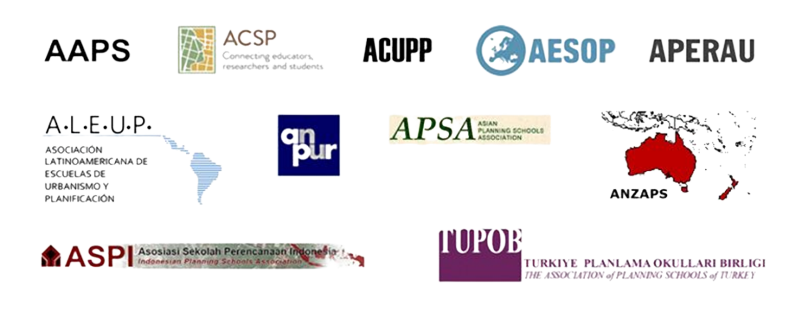HISTORY


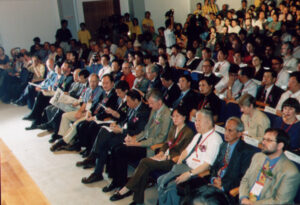
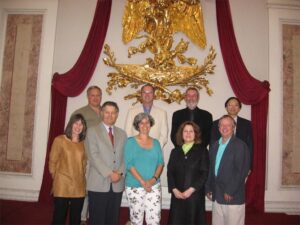

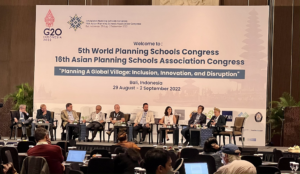
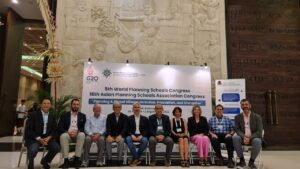
INITIATIVE AND AIMS
The initiative to organize World Planning School Congresses (WPSC) produced the formation of a global network by national and regional associations of planning schools and institutes around the world in 2001. Since then, this network, the Global Planning Education Association Network – GPEAN assigns the organization of each World Congress to one or more schools of its members. The event aims to bring together scholars and professionals from all continents to present experiences, discuss proposals and critical analysis and encourage a debate on the current planning problems in different parts of the world.
PLANNING SCHOOLS ASSOCIATIONS
In July 2001, four planning school associations representing urban and regional planning schools on four continents convened the first World Planning Schools Congress in Shanghai. In all, 650 scholars from over 250 schools in more than 60 countries met for five days to exchange research results, teaching experiences, and ideas about the future of the urban planning profession. Leaders of the four associations, the Asian Planning Schools Association (APSA), Association of Collegiate Schools of Planning (ACSP), Association of European Schools of Planning (AESOP), and Australia and New Zealand Association of Planning Schools (ANZAPS), took the opportunity to convene a meeting of leaders of all the world’s planning school associations. They were joined by six other associations representing schools in Africa, Brazil, Canada, Indonesia, Latin America, and the francophone word, in two days of meetings discussing the potential for future cooperation.
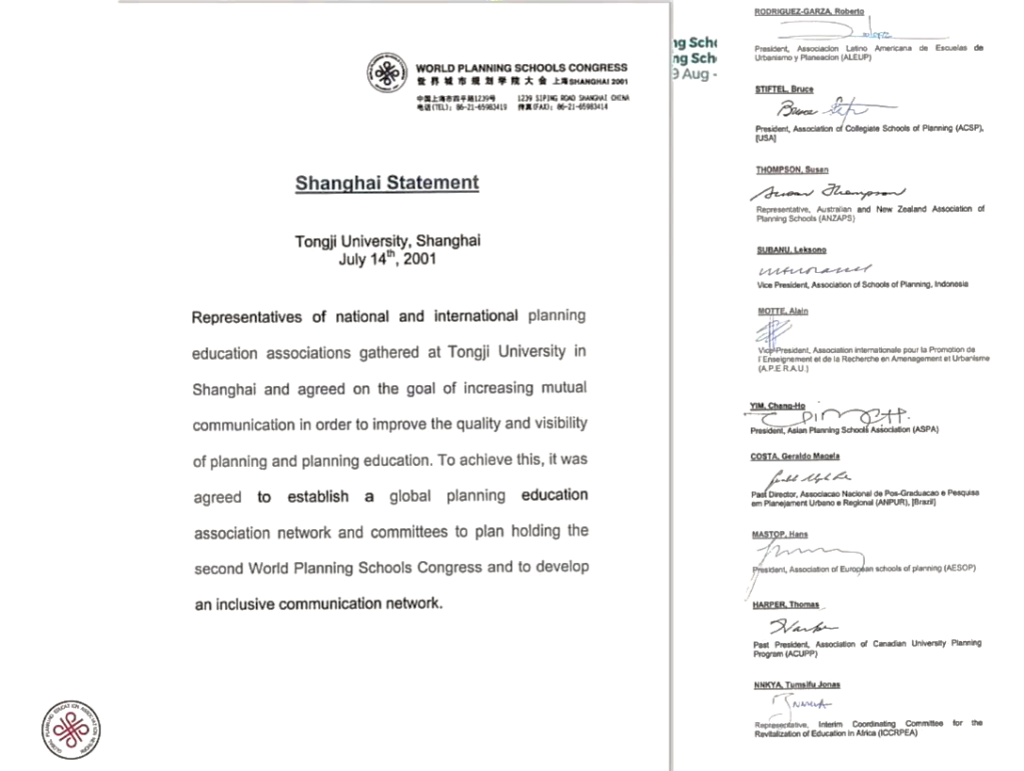
The Shanghai Statement creating the Global Planning Education Association Network (GPEAN) was signed by ten planning school associations at the 1st World Planning Schools Congress closing ceremony at Tongji University in 2001.
SHANGHAI STATEMENT
Although the ten associations reflected wide differences in organization, activities, and politico-economic contexts, they shared belief in the substantial potential for cooperation to advance planning education and scholarship. At the conclusion of the meetings, they agreed to cooperate on an ongoing basis with what became known as the Shanghai Statement:
“Representatives of national and international planning education associations gathered at Tongji University in Shanghai and agreed on the goal of increasing mutual communication in order to improve the quality and visibility of planning and planning education. To achieve this, it was agreed to establish a global planning education association network and committees to plan to hold the second World Planning Schools Congress and to develop an inclusive communications network.”
The association delegates signed the Shanghai Statement in English and Mandarin at the closing ceremony of the WPSC at Tongji University on 14 July 2001. A year later, nine of the associations sent representatives to an organizational meeting of the network in Volos, Greece, held in conjunction with the annual congress of AESOP. The associations ratified and signed a proposed charter prepared in Volos on 31 December 2002, establishing the Global Planning Education Association Network (GPEAN).
CURRENT PROGRESS
Today a network of 11 associations, those already named, plus the Association of African Planning Schools (AAPS), Association of Canadian University Planning Programmes (ACUPP), Latin-American Association of Schools of Urbanism and Planning (ALEUP), National Association of Urban and Regional Post-graduate and Research Programs (ANPUR, Brazil), Association for the Development of Planning Education and Research (APERAU, francophone), Association of Schools of Planning of Indonesia (ASPI), and Turkish Association of Planning Schools (TUPOB).
So far, five WPSCs have been organized:
- 1st WPSC, 2001, in Shanghai, China
- 2nd WPSC, 2006, in Mexico City, Mexico.
- 3rd WPSC, 2011, in Perth, Australia.
- 4th WPSC, 2016, in Rio de Janeiro, Brazil.
- 5th WPSC, 2022, in Bali, Indonesia.
GPEAN has an active role in discussions on teaching, research, and practice of urban and regional planning on a global scale as a result of that initiative. The network’s activities have included four world planning schools congresses, six edited issues of its book series, “Dialogues in Urban and Regional Planning,” published with Routledge, joint work with UN-Habitat, the International Society of City and Regional Planners, and the Global Planners Network, and in the various academic and professional activities in which its associations’ members participate.
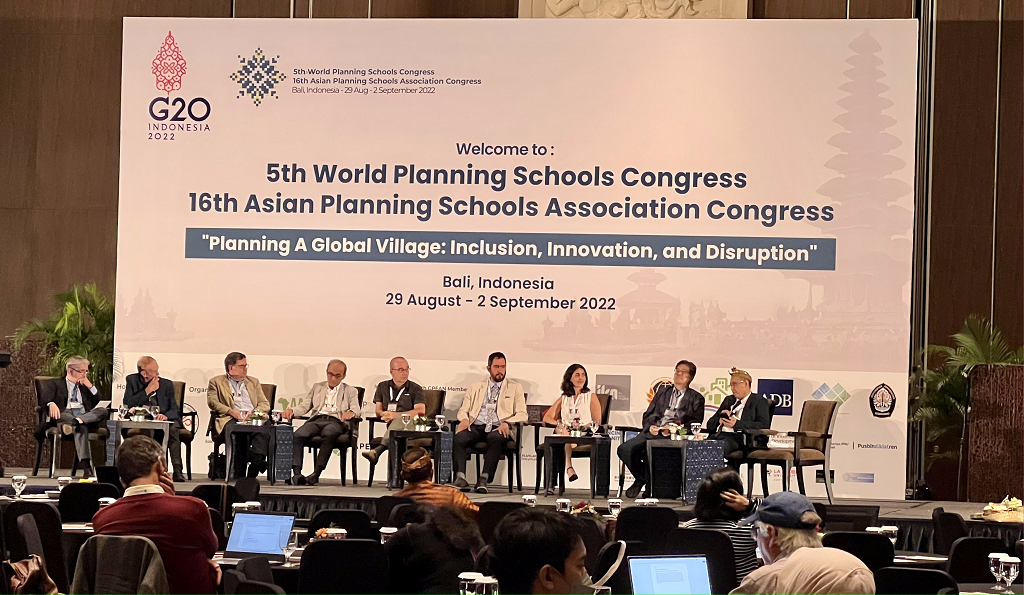
In the 5th WPSC 2022 at Bali, 2022 GPEAN commemorates the 20th Anniversary of the Shanghai Statement, which was the cornerstone for its creation.
The 5th WPSC was attended by 810 participants from 44 countries around the world on a hybrid basis, with no less than 400 participants participating directly in Bali. The Congress consisted of four Pre-Congress events, two Plenary sessions, about 120 Parallel sessions, GPEAN and APSA Committee meetings, and three mobile workshops.
The Pre-Congress events consisted of International Ph.D. Colloquium, Planning Studio, International Students Competition, and Global Planning Students Meeting, as agenda to enrich planning education that complements the WPSC and APSA Congress. About 1,247 participants attended the pre-Congress and main Congress events.
(Source: https://www.gpean-planning.org/history/; https://wpsc-apsa2022.org/about/world-planning-school-congress-wpsc/)
